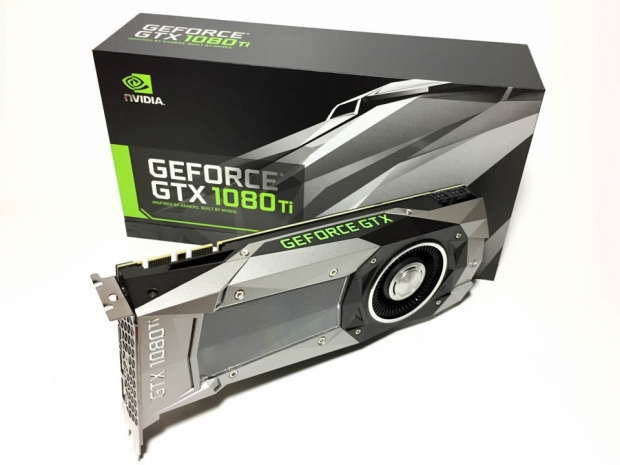Index
- Nvidia Geforce GTX 1080 Ti review
- GPU and memory overview
- Specifications, packaging and hardware overview
- Test Setup
- Results – Nvidia Vulkan API demo
- Results – Cinebench R15
- Results – Civilization VI
- Results – Just Cause 3
- Results – No Man's Sky
- Results – Far Cry 4
- Results – 3DMark + Time Spy
- Results – Unigine Heaven 4.0 Benchmark
- Overclocking
- Conclusion
- All Pages
Civilization VI
Sid Meier’s turn-based strategy games have been around since 1991 and have set a great example for the “4X” game genre – “Explore, Expand, Exploit and Exterminate.” Just like its predecessors, the game centers around building a custom civilization that can scale from prehistory to near future empires, encouraging the player to become a world power and achieve one of several victory outcomes through either military, technological, or diplomatic leadership, etc. Civilization: Beyond Earth supported AMD’s Mantle, the predecessor to Vulkan and DirectX 12, while the latest Civilization VI update from November now brings support for DirectX 12. New capabilities include asynchronous compute, explicit multi-adapter (multi-GPU rendering using split-frame technique), and of course new multiplayer map types including a 50-turn scenario called “Calvary and Cannonades.”
For this test, we are using the game’s built-in Benchmark utility, which outputs the results as milliseconds that pass between each frame. The lower number here is the better result.
Results – 3840x2160p
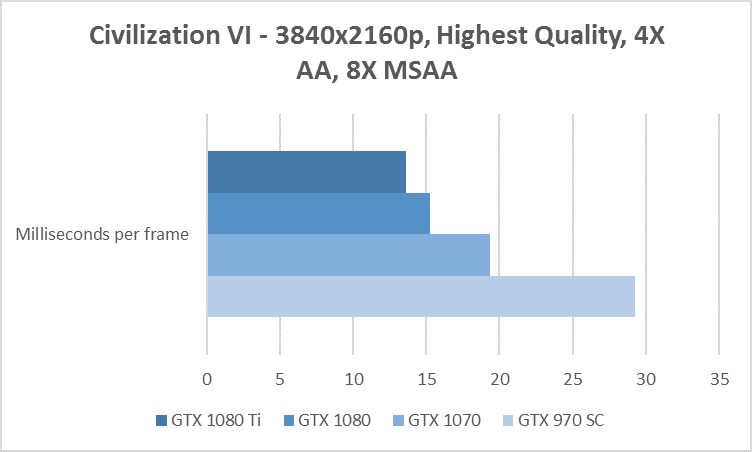
In the default clock results at 4K, the Geforce GTX 1080 Ti scores 13.641ms, followed by the GTX 1080 at 15.284ms, the GTX 1070 at 19.335ms, and the GTX 970 SC at 29.265ms.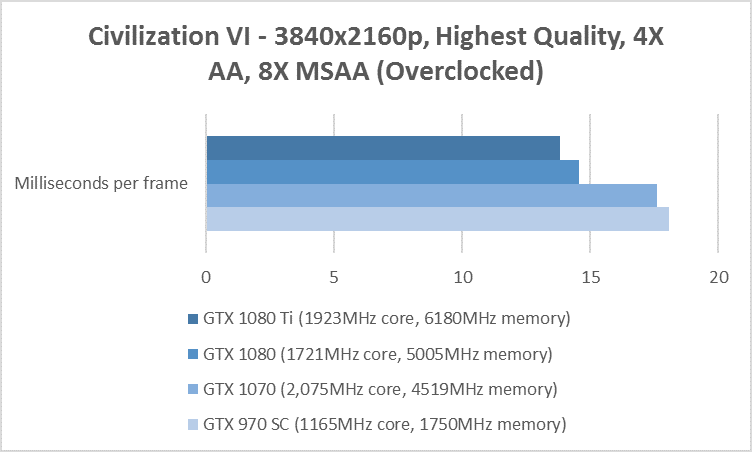
In the overclocked results at 4K, the Geforce GTX Ti scores 13.82ms, followed by the GTX 1080 at 14.556ms, the GTX 1070 at 17.617ms, and the GTX 970 SC at 29.265ms.
Results – 2560x1440p
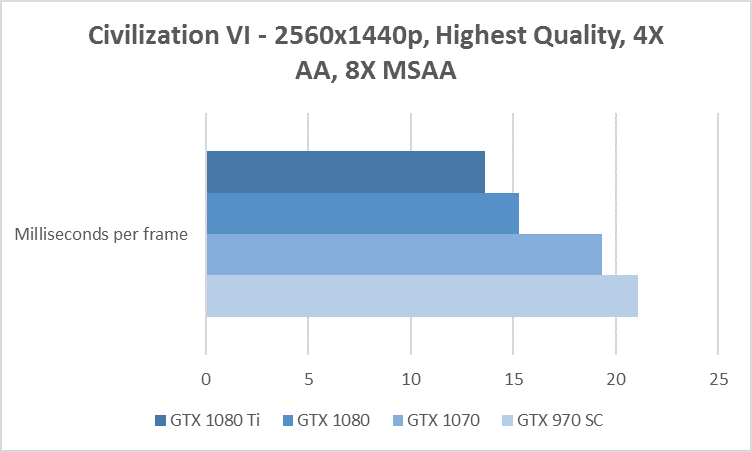
In the default clock results at 1440p, the Geforce GTX 1080 Ti scores 13.565ms, followed by the GTX 1080 at 13.155, the GTX 1070 at 13.617ms, and the GTX 970 SC at 21.07ms.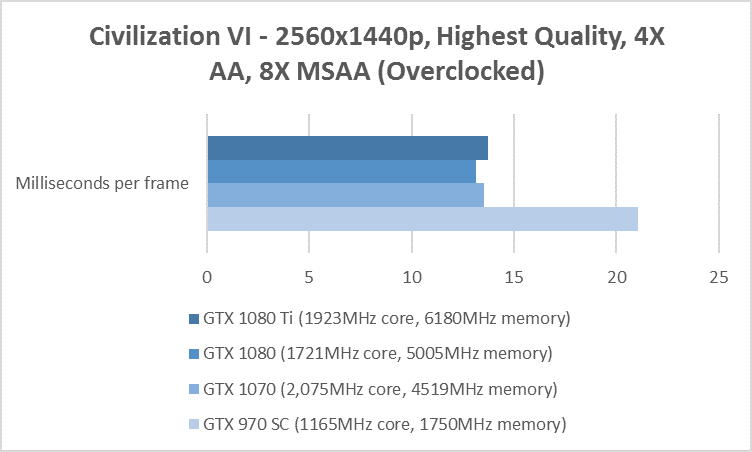
In the overclocked results at 1440p, the Geforce GTX 1080 Ti scores 13.743ms, followed by the GTX 1080 at 13.124ms, the GTX 1070 at 13.524ms, and the GTX 970 at 21.07ms.
Results – 1920x1080p
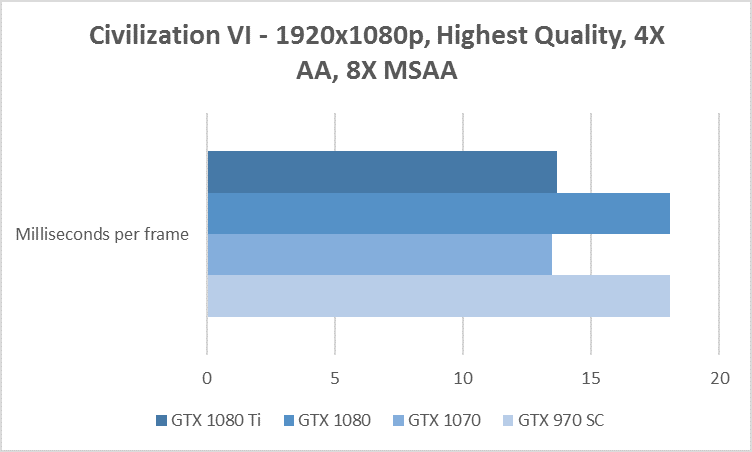
In the default clock results at 1080p, the Geforce GTX 1080 Ti scores 13.693ms, followed by the GTX 1080 at 13.198, the GTX 1070 at 13.484ms, and the GTX 970 SC at 18.077.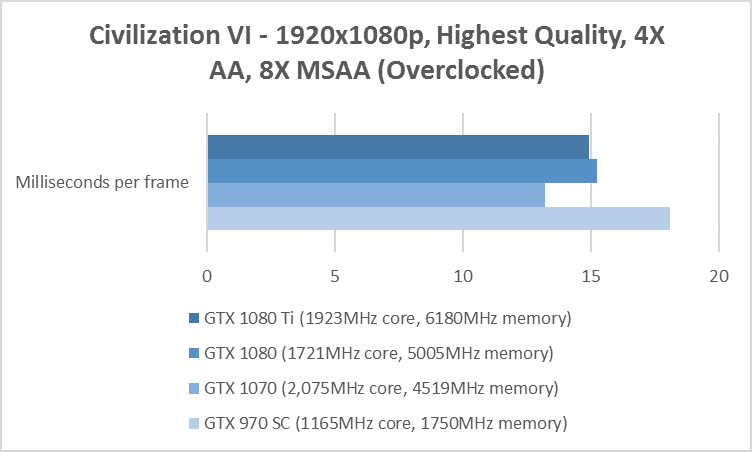
In the overclocked results at 1080p, the Geforce GTX 1080 Ti scores 14.922ms, followed by the GTX 1080 at 15.245ms, the GTX 1070 at 13.214, and the GTX 970 SC at 18.077. The results are a bit slower than the default clocks, signaling some slight variability with the game engine.

